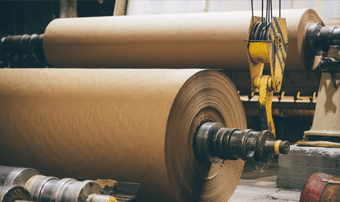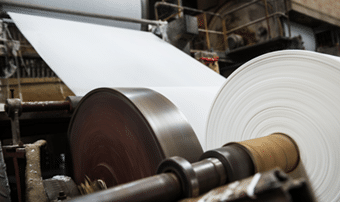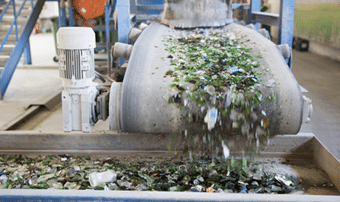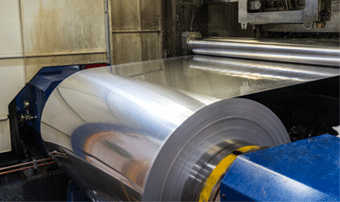What things that can be recycled? Have you thought about this and of those items you use every day, what they may have been in a previous life? The fleece jacket you’re wearing right now may have been made with recycled plastic from water bottles. Or, the tissues next to your desk may be made from recycled computer paper. On past blog posts, we’ve focused a lot on how, why and what to recycle, but below we discuss what happens to your materials after you toss them in your recycling bin! Continue reading to learn the many uses your recycled materials have.
CARDBOARDCardboard is one major thing that can be recycled. Cardboard is typically recycled into new cardboard, paperboard and paper bags. You might be wondering, why is recycling cardboard important? Well, more than 90% of all products sold in the U.S. are packaged in cardboard, and it makes up around 41% of the solid waste stream. By giving new life to your cardboard, it will save energy, decrease waste and put use to material that would otherwise have been sent to landfill.
|
Fun Fact: According to industry group Recycle Across America, recycling cardboard only takes 75% of the energy required to make new cardboard. |
|
Fun Fact: Recycling a single ton of paper saves enough energy to power an American home for half a year!
|
PAPERDifferent types of paper can be recycled to make different products. For example, newspaper can be made into make telephone books, construction paper, new newspapers and egg cartons. Recycled computer paper can create new paper, toilet paper, tissues, magazines and napkins. Sometimes, it's even recycled to create loft insulation and road surfaces! Who would have thought that the paper we use everyday could be recycled to make such a wide array of new products? |
PLASTICSThere are many forms of plastic, and each type is recycled to create it's own unique products. For example, plastic milk containers can be recycled to make bottles and playground equipment. Whereas plastic detergent bottles can be used to make stadium seats and Frisbees! Fleece jackets, upholstery, carpet, new plastic bottles, buckets and playground equipment are also among the many products created from recycled plastic!
|
Fun Fact: Making products with recycled plastics requires 66% less energy than using 'new' plastic materials. |
|
Fun Fact: Glass bottles and jars are 100% recyclable and can be recycled indefinitely.
|
GLASS BOTTLESRecycled glass can be made into many prodcuts including new glass containers, counter tops, flooring, tile landscaping stones, sewer pipes, astroturf, and more! Glass doesn't decompose so recycling it into other products offers cost savings, saves energy and reduces landfill waste! (Check out our decomposition clock here). |
ALUMINUM CANSAluminum can be recycled over and over again to create new aluminum cans, bicycle parts, airplane parts, train tracks, pipes and new cans. Aluminum is the most recyclable material and can be recycled an unlimited amount of times. The entire process doesn't take much time at all either! In as little as 6 weeks, the aluminum can be melted, turned into a new can, and placed back on the shelf.
|
Fun Fact: An estimated 75% of all the aluminum produced since 1888 is still in use today! |
At RoadRunner, we recognize the value in the things that can be recycled and the potential they have to be turned into something new. We work our hardest to make sure that your materials can be recycled into new products in the most efficient way possible! If you're interested in learning more about RoadRunner, feel free to reach out to us or leave a comment below.





